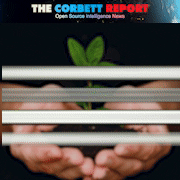Like many other people in the online era, Mario Costeja González found himself in an uncomfortable situation: When people Googled his name the top result was a piece of potentially embarrassing information from his now-distant past. But unlike many others caught in a similar predicament, he did something about it: He went to court.
The story goes like this: In 1998 González’ home was foreclosed as a result of debt which he subsequently paid off. But over a decade later he discovered that when people Googled his name the most prominent result was a link to a 1998 article from the Spanish newspaper La Vanguardia detailing the foreclosure. He asked the newspaper to remove his name from the article, but they refused to do so on the grounds that the announcement of the foreclosure had been mandated by the Spanish Ministry of Labour and Social Affairs. So González took his complaint to the Spanish Data Protection Agency, which rejected his complaint against the newspaper but upheld his complaint against Google, calling on the search engine to remove the link to the article from its results. Google countersued in the National High Court of Spain. In the end, the court ruled that search engines are “in certain circumstances obliged to remove links to web pages that are published by third parties and contain information relating to a person from the list of results displayed following a search made on the basis of that person’s name.”
The case contributed an important legal precedent to the so-called “Right to be Forgotten,” the idea that people should be free to live their lives without worry that they will be forever stigmatized by an event in the past that is no longer relevant. The great irony in González’ case, of course, is that when people Google his name now, they’re greeted with tens of thousands of search results about his case, discussing in great detail the very foreclosure that he had worked to expunge from his Google trail. Such is life in the age of the internet, a medium which has introduced us to “The Streisand Effect.”
But as distressing as it must be to attempt to separate oneself from one’s digitally preserved past, it has to be noted that the entire concept of the “Right to be Forgotten” comes with a corollary that is even more horrific: In order for the search engines and databases to grant your “Right to be Forgotten,” they must have the ability to memory-hole you.
In this week’s subscriber editorial James takes you on a trip down the 21st century memory hole to show you how people are being “disappeared” in the age of always-on digital information. Also, stay tuned for recommended reading, viewing and listening and get your 25% discount on Corbett Report DVDs in this week’s edition of The Corbett Report Subscriber.
For free access to this editorial, please CLICK HERE.
For full access to the subscriber newsletter, and to support this website, please become a member.
This content is restricted to site members. If you are an existing user, please log in. New users may register below.








32 Comments